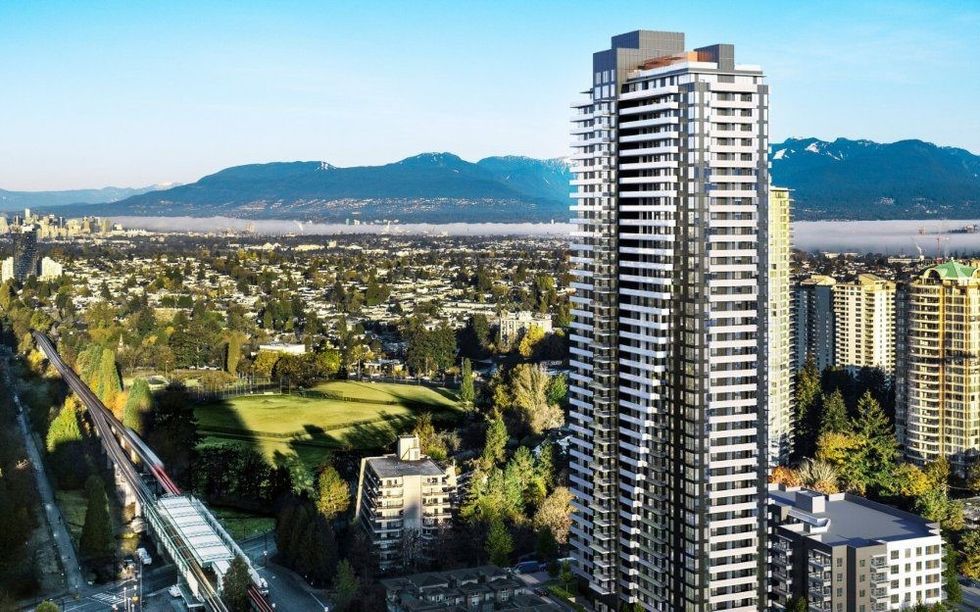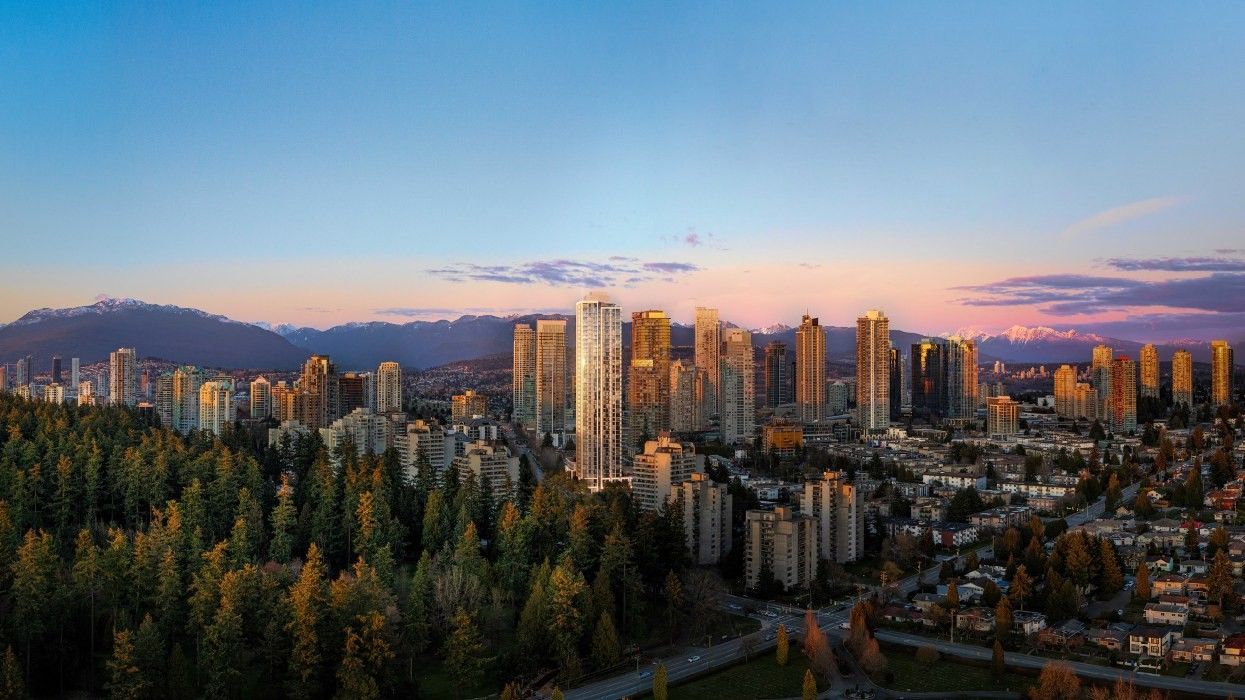During Monday night's meeting, Burnaby City Council granted a first, second, and third reading to its new development cost charges (DCCs) update and introduction of amenity cost charges (ACCs) bylaws, setting the stage for Burnaby to become one of the first municipal governments in British Columbia to introduce ACCs.
Amenity cost charges are a tool created by the Province this past fall meant to largely replace community amenity contributions (CACs), which are often subject to closed-door negotiations during later stages of the development approval process, creating uncertainty for developers.
Municipal governments will also have fewer and fewer opportunities to collect CACs, which are levied on development projects that require rezoning, because various legislative changes the Province has introduced are pushing local governments away from case-by-case "spot" rezoning and towards pre-zoning. The Province created ACCs as a way for local governments to continue collecting the funding they need for infrastructure projects.
The Province has also made the use of ACCs optional, so not every municipality may decide to utilize them, although many are expected to. The City of Burnaby signalled last month that it was going to use the tool, releasing a draft bylaw with proposed rates. Following Monday evening's meeting, the associated bylaws will now be forwarded to the Provincial Inspector of Municipalities, after which the City of Burnaby can grant final adoption. The City has said it is aiming for the new ACCs and updated DCC rates to come into effect before June 30.
Developer Concerns
The near-final approval came despite three notable developers, all with projects in Burnaby, having voiced their concerns over the introduction of ACCs, each in letters to the City.
The first is Anthem Properties, whose current projects in Burnaby include Citizen, Ethos, and South Yards, among many more.
In a letter addressed to Mayor Mike Hurley and Council, Anthem Properties' Executive Vice President of Development Rob Blackwell said Anthem had "deep concern" regarding the forthcoming changes to DCCs and the introduction of ACCs.
"From our perspective, the net result of these fee updates adds $38,841 to the cost to build a home in the City of Burnaby," wrote Blackwell. "This is a 100% increase in costs for these items as they did not previously exist. On its own this doesn't seem like a lot of money, but on a typical 300-home building this is $11,652,300! It is a lot of money, which works against the affordability of building homes. Unfortunately, this cost increase can’' be looked at in isolation, it will just be another cost added to the already very high costs of building a home in the City of Burnaby."
Blackwell notes that the current cost of building a one-bedroom, 550-sq. ft home in Burnaby is $678,056, which would be increased to $716,897 following the change. The cost of building an 825-sq. ft, two-bedroom unit would increase from $1,017,084 to $1,055,925 and a 1,025-sq. ft, three-bedroom unit would increase from $1,118,275 to $1,157,116.
Naturally, these increases will just get passed on to consumers — the basis of a long-running argument against all of these additional fees.
For renters, Blackwell notes that the $38,481 would necessitate a rent increase of $129.47 per month ($38,481/12 months x 4% cap), which would push rents in Burnaby — consistently one of the top three in all of Canada already — even higher.
"Burnaby has been a champion in addressing the housing crisis with the introduction of affordable units as a requirement of larger rezonings; however, even that is not possible with all the new costs," added Blackwell, noting that each affordable home is subsidized by the home builder at a cost of $800 to $850 per sq. ft and each rental replacement home is subsidized at a cost of $1,000 per sq. ft.
"It already does not work and by adding more costs to the overall equation, the City of Burnaby will see the number of home starts decline because projects are not economical and can not be financed any longer," he concluded. "With less supply, the cost of housing in the City of Burnaby will increase even more and become more unaffordable. All of this will completely undermine recent measures introduced by the provincial and federal governments to tackle the housing crisis and get more homes built."
In a similar letter, Robert Bruno, Executive Vice President of Polygon Homes, whose ongoing projects in Burnaby include Perla and Onyx, said the DCCs change and new ACCs "will have a significant impact on our ability to deliver housing in the City of Burnaby" if the City does not also review its current bonus density rates.
"Polygon has constructed over 4,400 homes in the City of Burnaby, with an additional 453 homes under construction and plans for an additional 1,800 homes in the near future," wrote Bruno. "The City of Burnaby was once one of the best places to do business, and the City's track record for delivering much needed housing is commendable. However, over the past years it has become much more difficult to process new development applications and building permit applications, with this additional time delay costing hundreds, if not millions, of dollars in additional holding costs."
Bruno then requested that the City complete a few additional steps before finalizing the changes, including ensuring that there is no "double counting" of fees, ensuring that ACCs will not apply to non-market homes and rental replacement homes, and considering delaying implementation for in-stream applications.

The third developer who voiced concern to the City was Montreal-based Canderel, which has a 56- and 43-storey tower project planned near Lougheed that the developer referenced in their letter.
"In short, the adoption of these new rates and fees will crush the feasibility of our project going forward," wrote Sr. Director of Development & Investment Ryan Jenkins and SVP of Investment & Development Bryce R. Margetts. "When you add the adoption of these new proposed rates, this will have a direct and significant impact onaffordability of housing within the City of Burnaby and will likely result in a substantial decline in new housing supply for years. As project feasibility grinds to a halt as a result of these massive increases indevelopment fees, there is a realistic probability that should these fees become adopted, many developments will be put on hold or abandoned all together."
Jenkins and Margetts also included a chart in their letter, showing that the fees for the aforementioned project would balloon from $30,324,930 to $63,001,321 after the new changes and also factoring in the DCCs charged by the Metro Vancouver Regional District. (The latter does not come into effect until January 1, 2025.)
The letters from all three developers were dated March 15 and were follow-ups to a consultation meeting the City had with the development industry. Additionally, none of the three developers mentioned CACs (called community benefit bonuses in Burnaby), which the City has already said they will not be able to rely on as much after the change — potentially balancing out portions of the new ACCs.
During Monday evening's council meeting, councillors discussed the changes for about five minutes, but did not address the concerns voiced by the developers before voting in favor of the changes.
- Thind To Convert 10 Floors In 48-Storey Highline Metrotown Tower To Hotel Use ›
- Anthem CEO Eric Carlson On The $10M CAC Deferral, State Of Housing Development ›
- Anthem And Crestpoint Take Over West End Project From Strand And Intracorp ›
- How The Ontario Developer Coalition Pledging To Reduce Prices Came Together ›
- Vancouver Developers Link Arms, Take Aim At DCC Increases ›
- Burnaby Approves Polygon's 4-Tower Emerald Place Project ›
- Neil Chrystal On Polygon Homes' 45th Birthday, Development Landscape ›
- Coquitlam Outlines Rates For New Amenity Cost Charges Program ›




















